Mr. Taro Kono, Minister for Digital Transformation visited Finland, Sweden and Estonia
- Published:
- Last Updated:
Published on July 18, 2023
Updated on September 26, 2023
From July 11 to 16, Minister Kono visited Republic of Finland, the Kingdom of Sweden, and the Republic of Estonia to meet with ministers, visit digital-related authorities, and exchange views.
During the visit, Minister Kono explained the Institutional Arrangement for Partnership (IAP) for operationalizing Data Free Flow with Trust (DFFT) agreed at the G7 Hiroshima Summit and the G7 Digital and Tech Ministers’ Meeting in Takasaki, Gunma. He also presented Japan's initiatives and objectives to cooperate with like-minded countries beyond the G7 in terms of priorities for projects and cooperation on key use cases for these efforts, which gained the understanding and support of each country he visited.
The Nordic countries are recognized worldwide as digitally advanced countries, leading the way in the digitalization of their entire societies. Minister Kono exchanged views with many authorities and others about a society based on the digital culture achieved through a process of trial and error, and the human-centered digital government services that drive it. He also discussed collaborating on future services and functions, including the connectivity of digital IDs, which is the base of trust. Throughout the meetings, he promised to continue sharing knowledge on digitalization and exchanging experts to reinforce cooperation.
The Digital Agency of Japan will further enhancing the international momentum of the DFFT and promoting its operationalization.
1. Visit the Republic of Finland
1. Meeting with the Minister for Foreign Trade and Development
Minister Kono visited Finland on July 12, and had a meeting with Mr. Ville Tavio, Minister for Foreign Trade and Development. The ministers had a discussion regarding the potential collaboration in operationalizing DFFT and on projects thereof. They also promised to continue exploring and sharing knowledge about the areas of digital collaboration. Furthermore, they exchanged views on the current status of digital ID usage in Finland, where the adoption of advanced technologies in society is making progress.
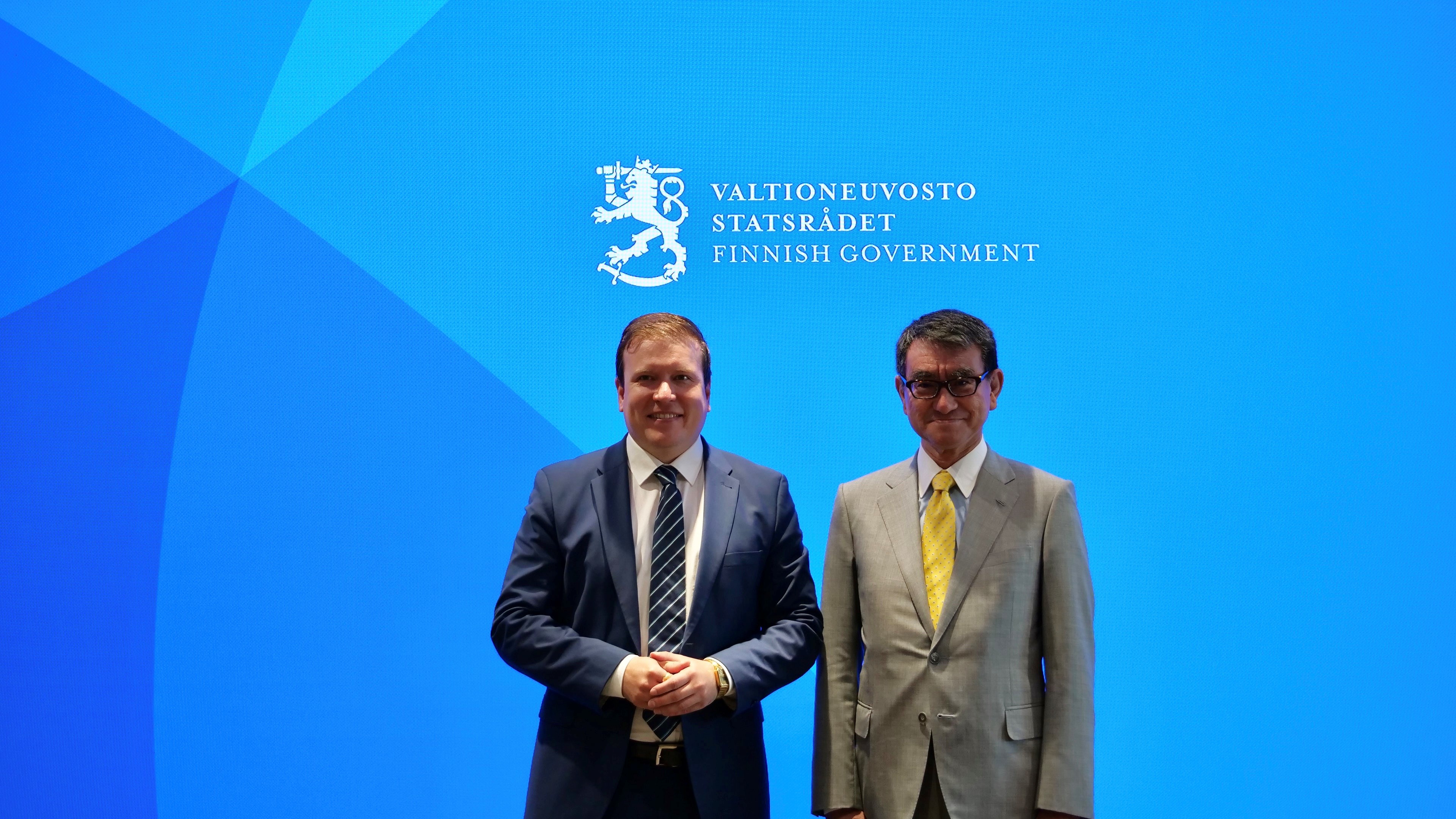
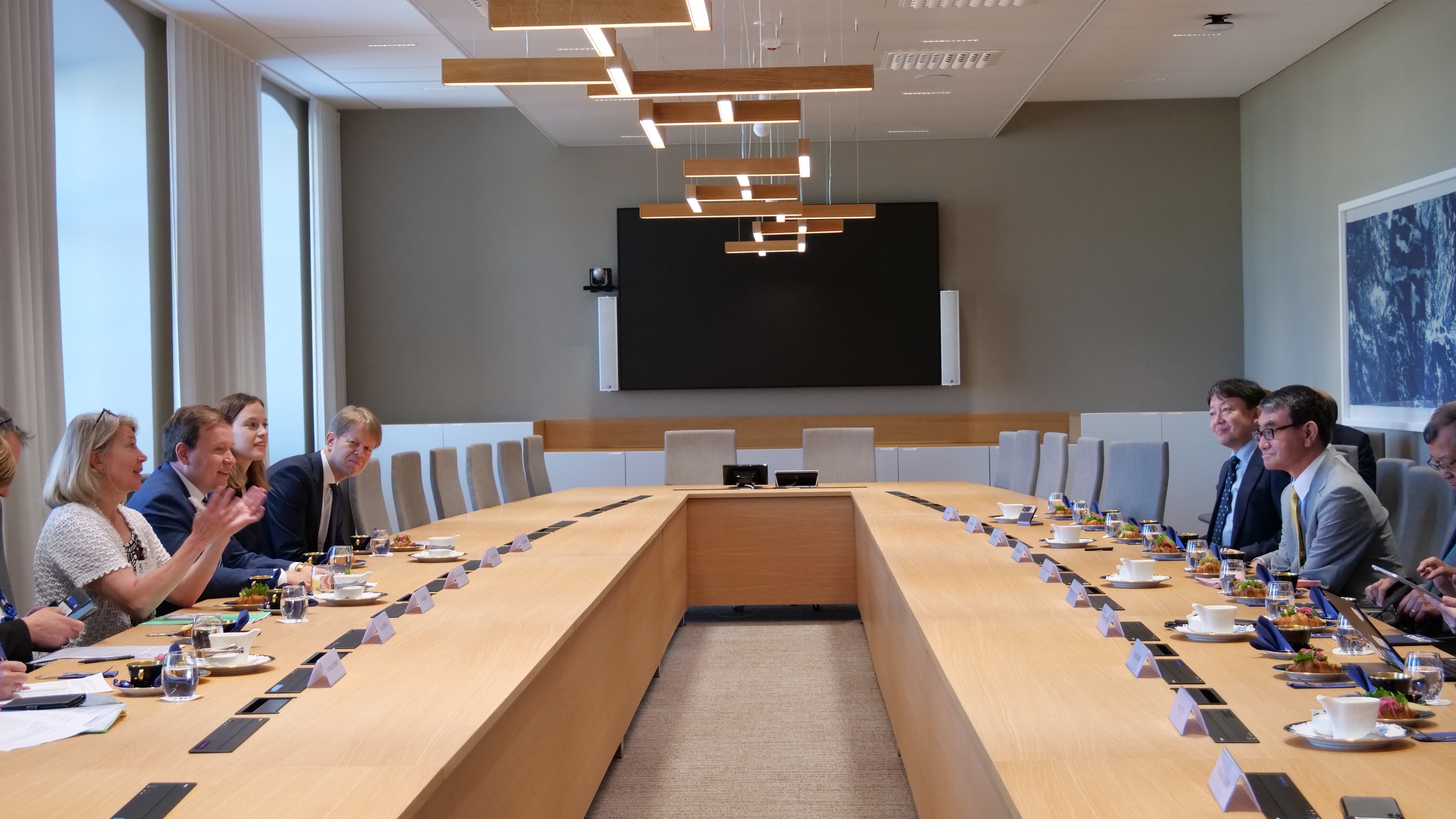
2. Meeting at the Ministry of Finance
Minister Kono held a meeting with Ms. Elina Laavi, the State Secretary of the Ministry of Finance, and experts from the Ministry of Finance and the Digital and Population Data Services Agency (DVV) to discuss the Aurora ID and Individual ID.
Finland has been using an individual ID since the 1960s and has been leading the world with digitalization in administrative services. The meeting provided an opportunity to learn Finland's experience in using personal data in administrative services while ensuring privacy.
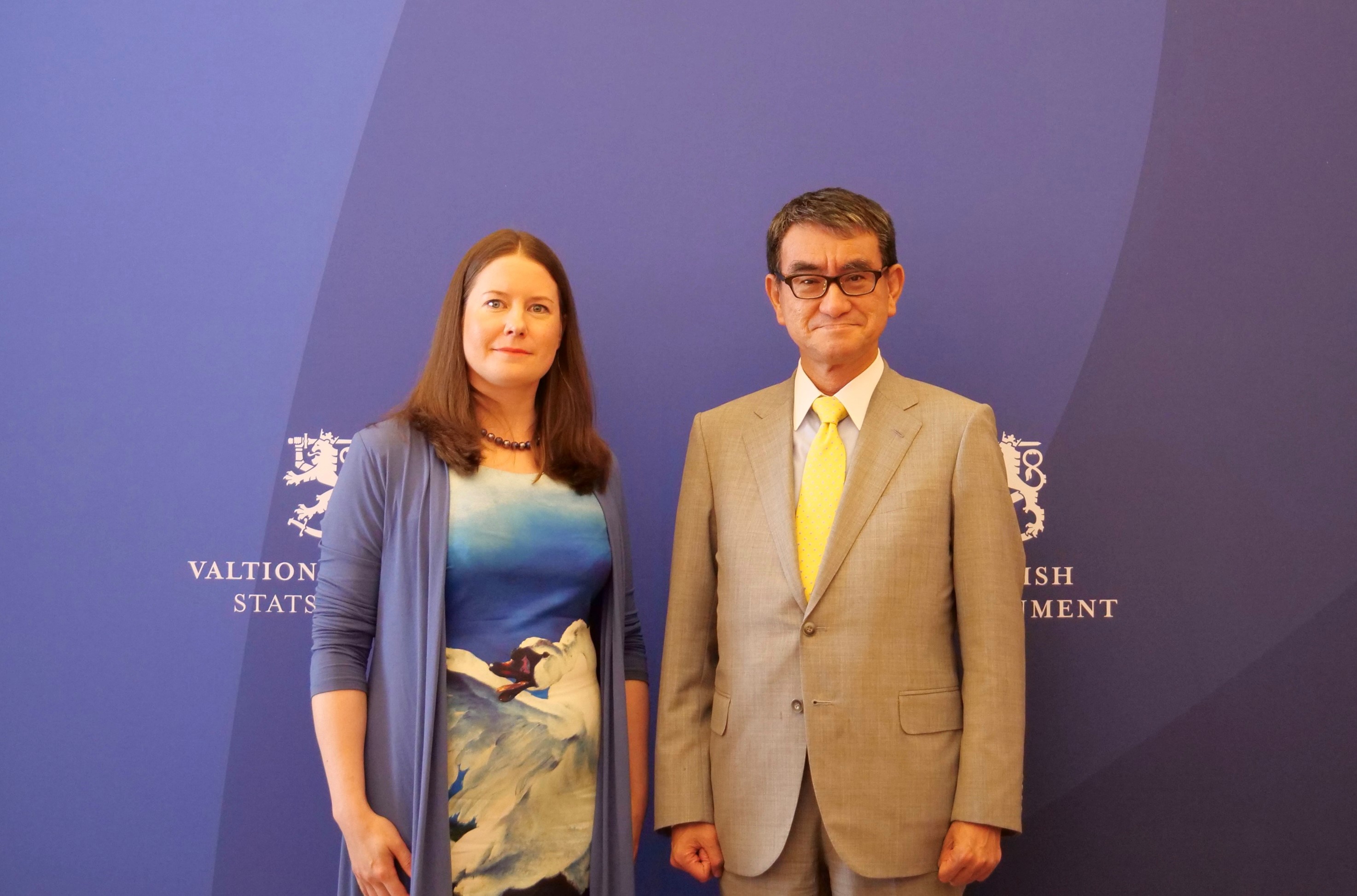
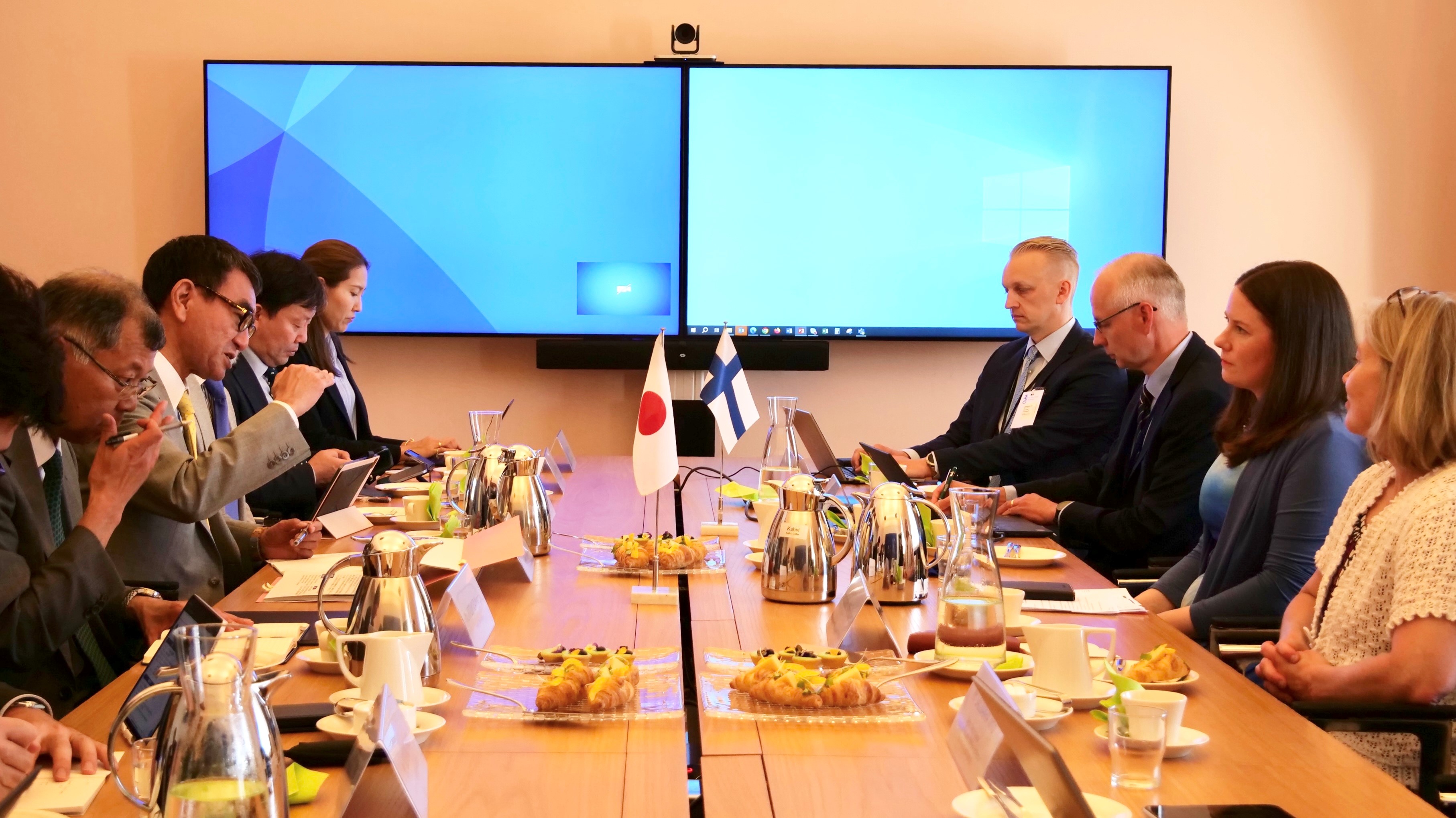
3. Visit the digital companies
Minister Kono held meetings with digital companies operating globally and engaged in digital infrastructure to discuss the future that would be created by using new technologies and connectivity. During these sessions, he received insights from experts on the latest security threats and corresponding measures, considering the current international situation, trends, and their potential severe impact. He also received a briefing on the necessary measures to mitigate the growing security risks arising from the increasing digitalization.
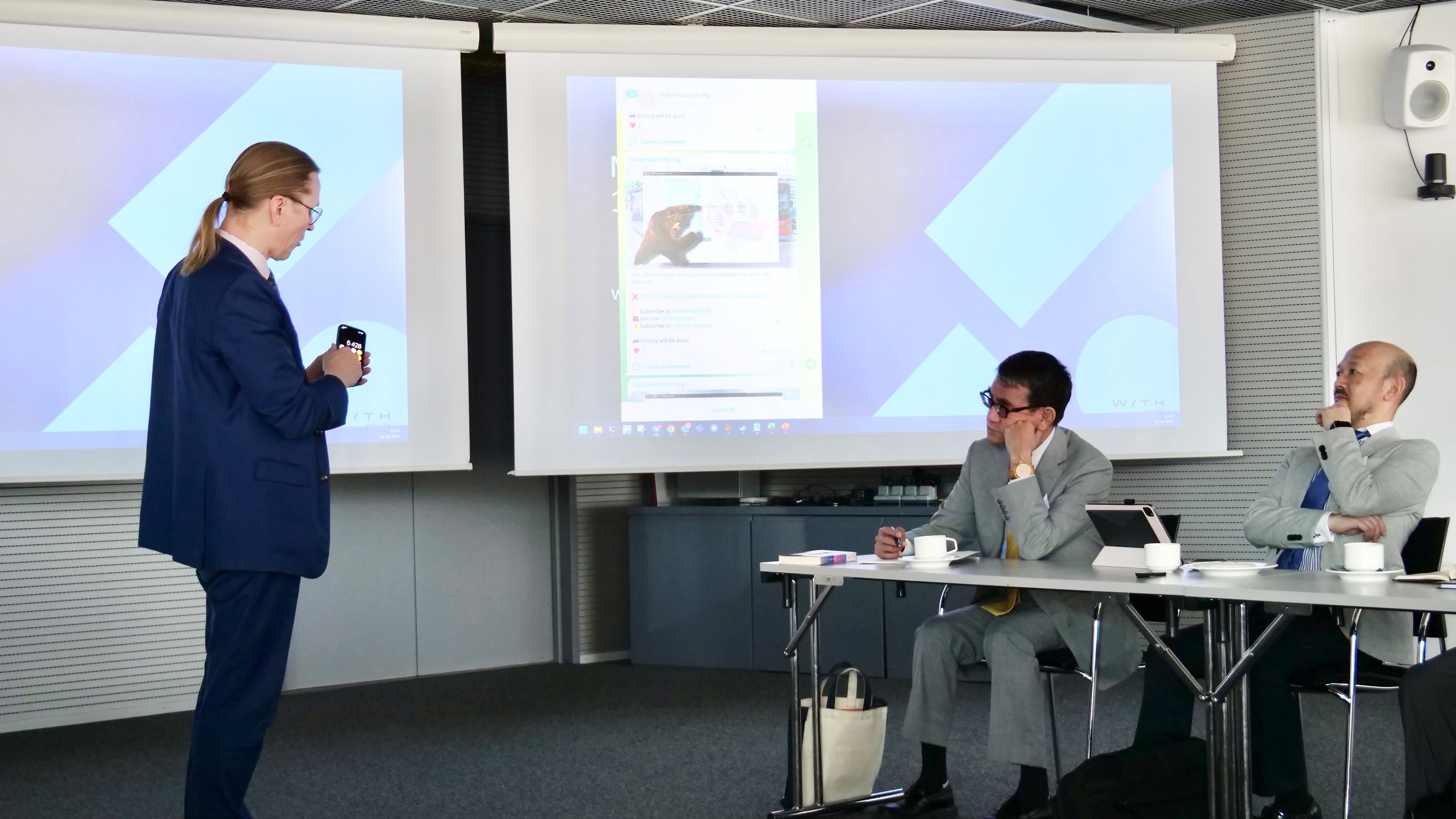
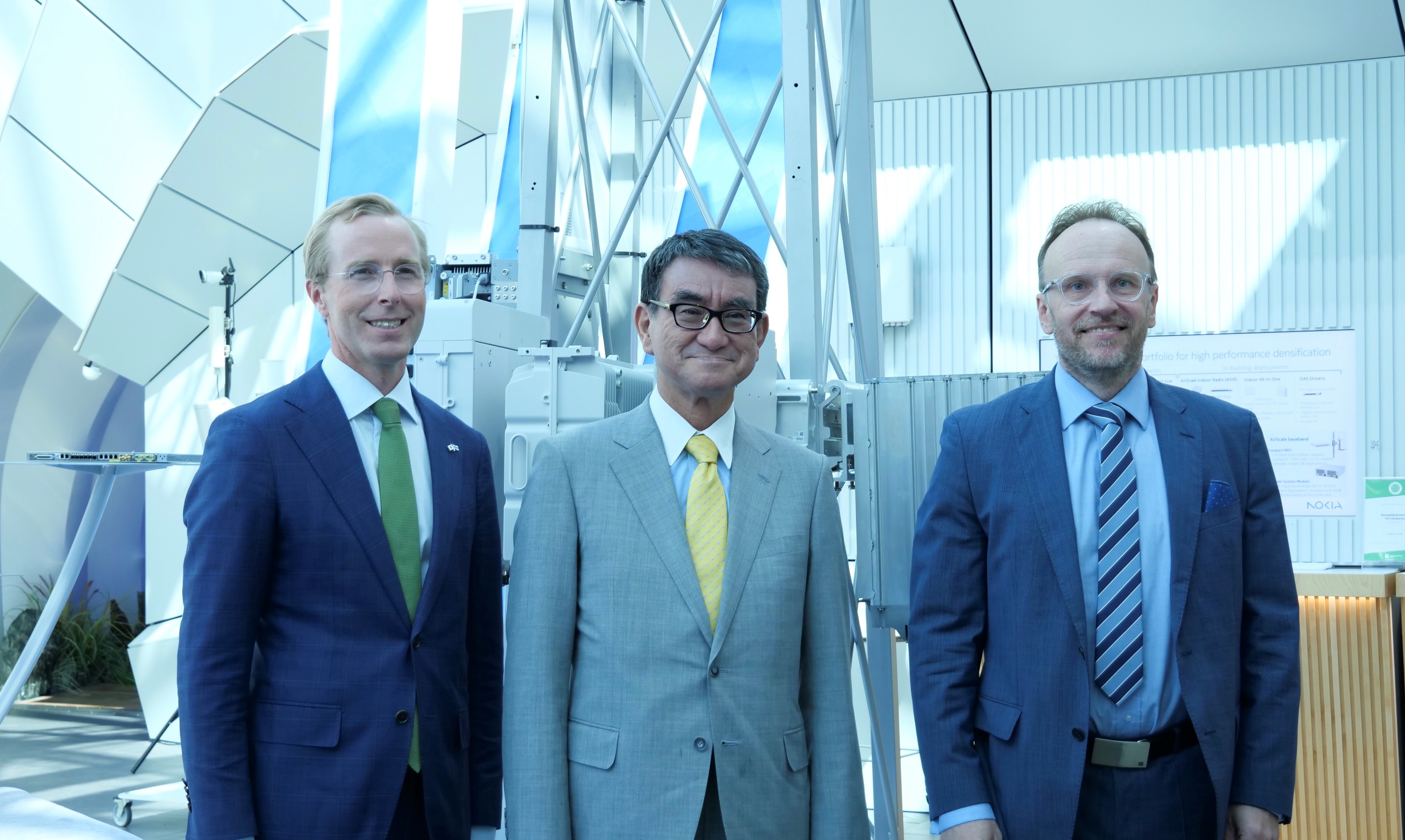
2. Visit the Kingdom of Sweden
1. Meeting with the Innovation System Agency
On July 12, Minister Kono visited the Kingdom of Sweden and on the following day, he visited the Innovation Systems Agency (VINNOVA), which is a government organization under the Ministry of Climate Industry. The agency is responsible for implementing research and development projects to promote innovation among multiple stakeholders, including companies, governments, and academic institutions. During the visit, Minister Kono discussed various issues with the agency, including cross-border data flows and the status of generative AI implementation in Sweden. They also discussed the possibility of collaborating to operationalize DFFT.

2. Meeting with the Swedish eHealth Agency
The Swedish eHealth Agency (E-Hälsomyndigheten) is working towards creating a data-driven society based on data and trust. They collect and analyze personal data for the benefit of citizens and then return it to them. As a result of this, the e-prescription usage rate in Sweden exceeds 99%, and patients receive suitable medical care at their preferred medical institutions since their medical histories are shared in the medical system. Moreover, the medical system is connected to the reimbursement system, ensuring the safety of patients receiving medical care. The discussions focused on managing individual IDs and their usage in Sweden to share data among medical institutions, patients, and pharmacies.

3. Meeting with the Agency for Digital Government
The Agency for Digital Government (DIGG) presented Minister Kono with Sweden's digitalization principles, which include taking responsibility for society's digital infrastructure, data analysis, and social return. DIGG also explained specific initiatives for infrastructure development, digital mail, and data portals and shared the current use of individual IDs as digital infrastructure and the difficulties encountered in implementing the system so far.

4. Meeting with the Swedish Tax Agency
During the meeting with the Swedish Tax Agency (Skatteverket), we learned about the history of individual ID operations in Sweden and the measures taken to improve the process over the years. The individual ID was implemented in 1947 and became the responsibility of the Tax Agency in 1991, which led to digitalization and the current system. During the transition from manual to digital operations, there were errors in the numbering system. However, the Tax Agency has continuously worked to improve the numbering system and the process to eliminate these errors. They are also focusing on informing the public about the benefits of using individual IDs. By overcoming challenges in improving incentives by using individual IDs and systems, online government services, including e-tax payments, have been valued and trusted by citizens. Sweden's initiatives demonstrate that to earn the trust of the people, we must continuously improve our services and deliver results without giving up, leading to the digitalization of society. We exchanged views on our future initiatives and promised to continue sharing the experiences of both countries.

5. Visit companies involved in digital infrastructure
Minister Kono visited companies involved in digital infrastructure globally and discussed a wide range of areas related to the vision and specific use cases of the value that the deployment of emerging technologies and further improvements in connectivity will bring to the lives of citizens and society.

3. Visit the Republic of Estonia
1. Meeting with the Prime Minister of the Republic of Estonia
On July 14th and 15th, Minister Kono visited Estonia and he paid courtesy call on Ms. Kaja Kallas, Prime Minister of the Republic of Estonia. During the meeting, Prime Minister Kallas shared Estonia's unique challenges and initiatives as a digitally advanced country. They also had high-level discussions on issues such as bridging the digital divide, internet voting (i-Voting), and cybersecurity. Minister Kono requested Estonia's cooperation to promote and operationalize DFFT and participation in projects thereof. They both agreed to enhance cooperation in areas such as cross-border data flows and mutual identification.


2. Meeting with Mr. Tiit Riisalo, Minister of Economic Affairs and Information Technology
During the meeting, Minister Kono and Minister Riisalo discussed the importance of implementing common regulations for reliable data connectivity. They also promised to continue exploring opportunities for collaboration in operationalizing DFFT and on projects thereof. In addition, the ministers affirmed their commitment to improving the exchange of human resources and fostering official-level cooperation on specific projects, including i-Voting and data transfer, in which Estonia is leading the world. This commitment is based on the Memorandum of Cooperation signed by the Digital Agency and the Ministry of Economic Affairs and Communications of the Republic of Estonia in May 2022.


3. Meeting with the Information System Authority and Ukraine
Minister Kono visited the Information System Authority (RIA) where he was briefed on Estonia's administrative services and the measures taken to ensure security. Estonia is currently working on developing mRiik, a digital ID platform based on Ukraine's ID application, Diia. During the meeting, Ms. Valeriya Ionan, Deputy Minister of Digital Transformation of Ukraine, also joined in online and discussed the importance of sharing digital platforms, the challenges faced, and the innovative development methods for collaboration with other countries based on their specific experiences.
The Memorandum of Cooperation signed earlier with both Estonia and Ukraine was reaffirmed, and specific ways of cooperation were agreed upon, including sharing of knowledge, exchange of human resources and technology, and promotion of targeted projects.


4. Visit the Cooperative Cyber Defense Center of Excellence
During the visit to the Cooperative Cyber Defense Center of Excellence (CCDCO), which is a cyber-focused research institute recognized and promoted by NATO, Minister Kono discussed the framework of cyber defense capabilities that need to be secured in the wake of recent cyber-attacks. The discussion focused on the menu of exercises offered and cooperation with participating countries to achieve a collective response. Japan has also started cooperating by participating in the program and dispatching experts. Through the meeting, they affirmed the importance of ensuring organizational capabilities for cyber defense, which are essential for a digital society, and securing human resources for this purpose.

5. Introduction on the e-Parliament
Minister Kono visited the Estonian Parliament and received updates from four parliament members regarding the status of digitalization. Members are allowed to participate in parliament hybrids, and voting is done by the internet. Estonia is the first country to adopt internet voting (i-Voting) and this year, for the first time, the voting by online exceeded 50%. Minister Kono gained valuable insight from their experience with the i-Voting, such as the necessity of constant system updates, the importance of seamless information connectivity, and the difficulty of engaging a diverse range of voters of all ages. Discussion also focused on ensuring transparency in the use of digital technology.

6. Visit the e-Estonia Briefing Center
Minister Kono visited to the e-Estonia Briefing Center, where he had a tour of the facility and exchanged views with members of the center. During the visit, he was briefed on Estonia's advanced initiatives, including X-Road, mRiik, e-Residency, and i-Voting. He also learned about the impact of digitalization on society, including specific cases and challenges faced, as well as ongoing initiatives and how they are being addressed. The discussion also covered several factors necessary to promote the digitalization of the entire society, such as ensuring data compatibility, providing convenient common infrastructure, UI/UX, and collaborating with local governments, related industries, and other stakeholders.
